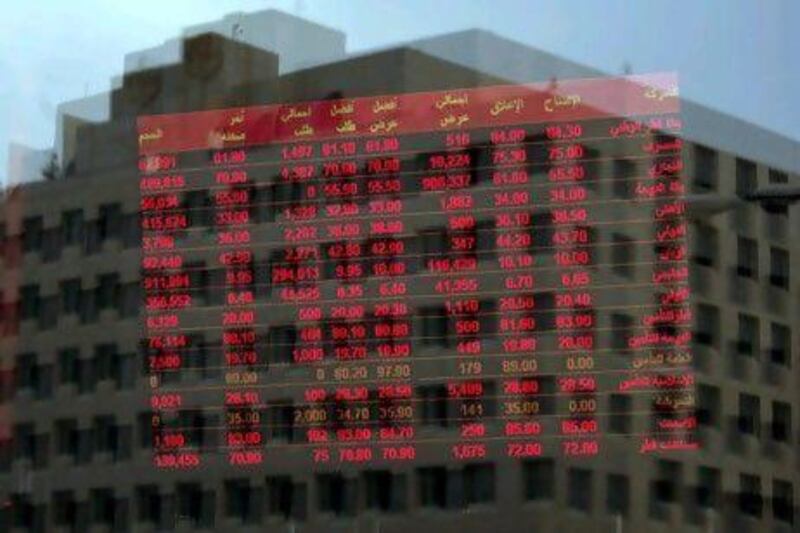Many investors and stakeholders in the GCC equity markets, in particular the UAE and Qatar, were anxiously awaiting an announcement from MSCI, a global provider of indexes, regarding the status of a possible upgrade to "emerging markets" status from the current "frontier" status.
Last week, MSCI announced consideration for such an upgrade would be extended by six months, allowing interested parties more time to assess recent developments undertaken by the UAE and Qatar exchanges.
The extension was an unusual move by MSCI, where the standard review period has been one year.
It shows MSCI acknowledges the efforts both exchanges have made in recent months, indicating their willingness to meet the inclusion criteria and considering feedback from the largest investors around the globe.
In our opinion this is a positive announcement for the UAE, as the market had been assigning a low probability of upgrade this year.
While initial market reaction may be negative, expectations are for the UAE to start pricing in this news over the coming months as the market trades at a deeply discounted valuation to emerging markets, and indeed to the rest of the GCC.
Given that income per capita for both the UAE and Qatar are among the highest in the world, some would argue those markets should automatically be classified as emerging and perhaps be considered for an upgrade to "developed market" status.
However, both are still relatively new, characterised by lower liquidity, lower equity market capitalisations, less diversified sector representation and, until recently, lagged behind in terms of their operational frameworks. One has to acknowledge, however, the phenomenal development of both markets in a short period of time.
The introduction of the "delivery versus payment" system and other operational enhancements have better aligned the exchanges with international best practice followed by world-class exchanges.
The path of development is expected to continue at an even faster pace, as exchanges are given incentives to continue developments that meet the best interests of investors, such as raising ownership limits set on foreigners, an investor concern highlighted by MSCI.
The MSCI emerging markets index was launched in the mid-1980s, and has over the years grown in importance to investors around the world.
At inception, the index represented about 1 per cent of the MSCI all-country world index, a percentage that grew to 10 per cent by 2008, indicating a radical change in opportunities available to investors seeking to diversify globally.
Many global investors manage money both passively and actively using the MSCI emerging markets index.
If MSCI announces the inclusion of the UAE and Qatar at the end of this year, it would effectively give them weights of about 0.3 per cent and 0.4 per cent respectively.
It is estimated about US$100 billion (Dh367.31bn) is invested in exchange-traded funds (ETFs) tracking the MSCI emerging market index.
Following successful inclusion, managers of ETFs would rebalance their portfolios in the proportions of the new index weights, automatically benefiting the UAE and Qatar exchanges through fund inflows.
The last two countries that joined the MSCI emerging market index were Egypt and Morocco in 2001.
In addition to the benefit they gained from passive fund flows, global active managers and major research and brokerage firms took interest in studying, analysing and making those markets accessible to their wide client base of institutional and high net-worth individuals.
The increased interest has positively affected the level of corporate governance in those markets, which have dramatically improved as a result of an increasing number of investors becoming interested in companies listed on those exchanges.
A status upgrade for the UAE and Qatar is also expected to have a positive effect on market depth and velocity, and may cause a shift in the dominance of investors from retail to institutional, which typically results in more liquid markets coupled with better informed and longer-term investment decisions.
Stocks likely to benefit in the UAE include Emaar Properties, DP World, National Bank of Abu Dhabi, Abu Dhabi Commercial Bank, First Gulf Bank and those on the Dubai Financial Market General Index. In Qatar, Qatar National Bank, Al Rayan Bank and Qatar Telecom are likely to be beneficiaries.
Overall we believe the stage is now set for the inclusion of UAE and Qatar into the MSCI emerging market index and it is now just a matter of time.
Saleem Khokhar is the head of equities at National Bank of Abu Dhabi





